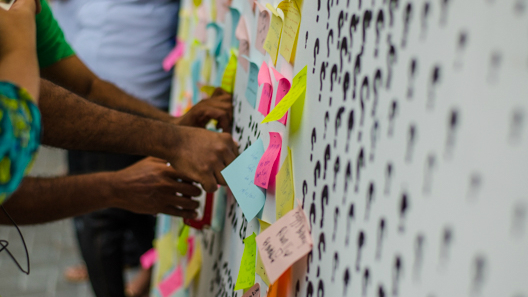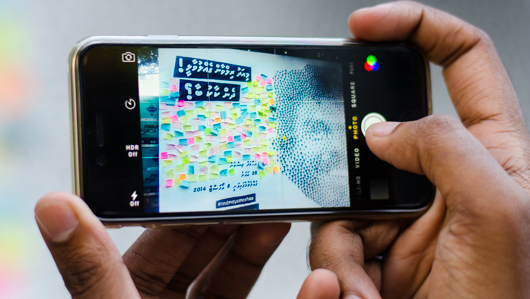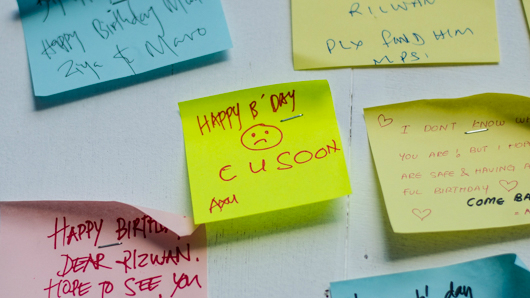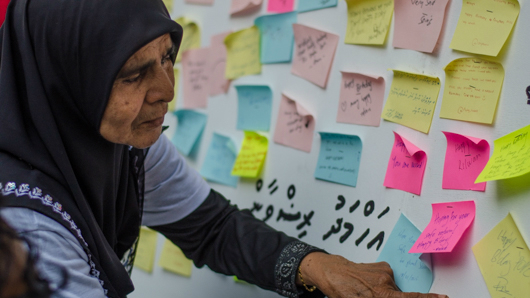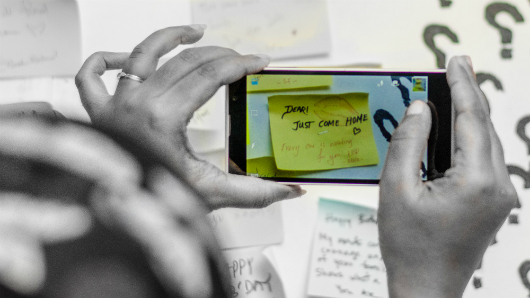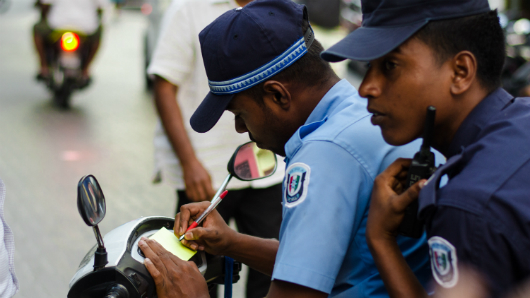The opposition Maldivian Democratic Party (MDP) has said today that the government decided to increase teachers’ salaries only because it was left with no other choice.
Speaking to the press today, the chair of the MDP’s education and training committee, former education minister Dr Musthafa Luthufee, said that the government had no intention of increasing teachers’ salary until the end of 2014.
“It was not included in the budget, and teachers demonstrated and threatened to strike. The salary increment was announced after even the government started providing wages for athletes,” said Luthufee.
The Ministry of Education announced the salary increases earlier this month, with some teachers’ pay jumping by up to 35 percent.
The salary increments came after repeated protests last year, with 90 percent of teachers protesting in September– wearing black clothing to raise awareness of poor pay, inadequate protection of teachers, and the failure to grant the Teachers Association of Maldives official recognition.
The MDP education committee also alleged today that since the government has decided to significantly increase the salaries of those teachers with a diploma, a degree or a Master’s degree, a lot of teachers who do not fall into these criteria are at a loss.
“1200 teachers have applied to study for diplomas at Mandhu college,” said Luthufee. “This will have negative social impacts on teachers who have certificate level qualifications, especially in small islands.”
Speaking to the press earlier this month (January 10), education minister Dr Aishath Shiham said President Abdulla Yameen had fulfilled his pledge to honour teachers, and that the government’s aim was to employ qualified teachers and provide them with adequate pay.
However, Vice Chair of the MDP education committee Shifa Mohamed – also a former education minister – argued that the structure of the increments was not properly planned or researched.
“For example, most Dhivehi teachers have a language degree, not a teaching degree. How will these teachers get increments?” asked Shifa.
The MDP also severely criticised the government for failing to consult with the relevant stakeholders regarding the new grade one to three syllabus.
“A new syllabus does not only mean new text books,” said Luthufuee. “The syllabus is very important as it holds the power to eventually shape these individuals in 18 years’ time.”
The education committee said that a new syllabus should only be implemented after holding consultations with students, teachers, parents, education experts, religious experts, and other relevant stakeholders.
The spokesperson for the ministry of education was not responding to calls at the time of publication.
The ruling Progressive Party of Maldives is trying to make it seem as though the syllabus is the creation of the current government alone, while in fact it is the product of numerous individuals over many years, argued the MDP committee today.
Related to this story
President Yameen announces rise in teachers’ salaries
Teachers across Maldives take part in ‘black protest’
Education Ministry hikes teachers’ pay by 35 and 15 percent
Teachers’ Black Sunday protest prompts government talks, strike decision pending
 (0)Dislikes
(0)Dislikes (0)
(0)